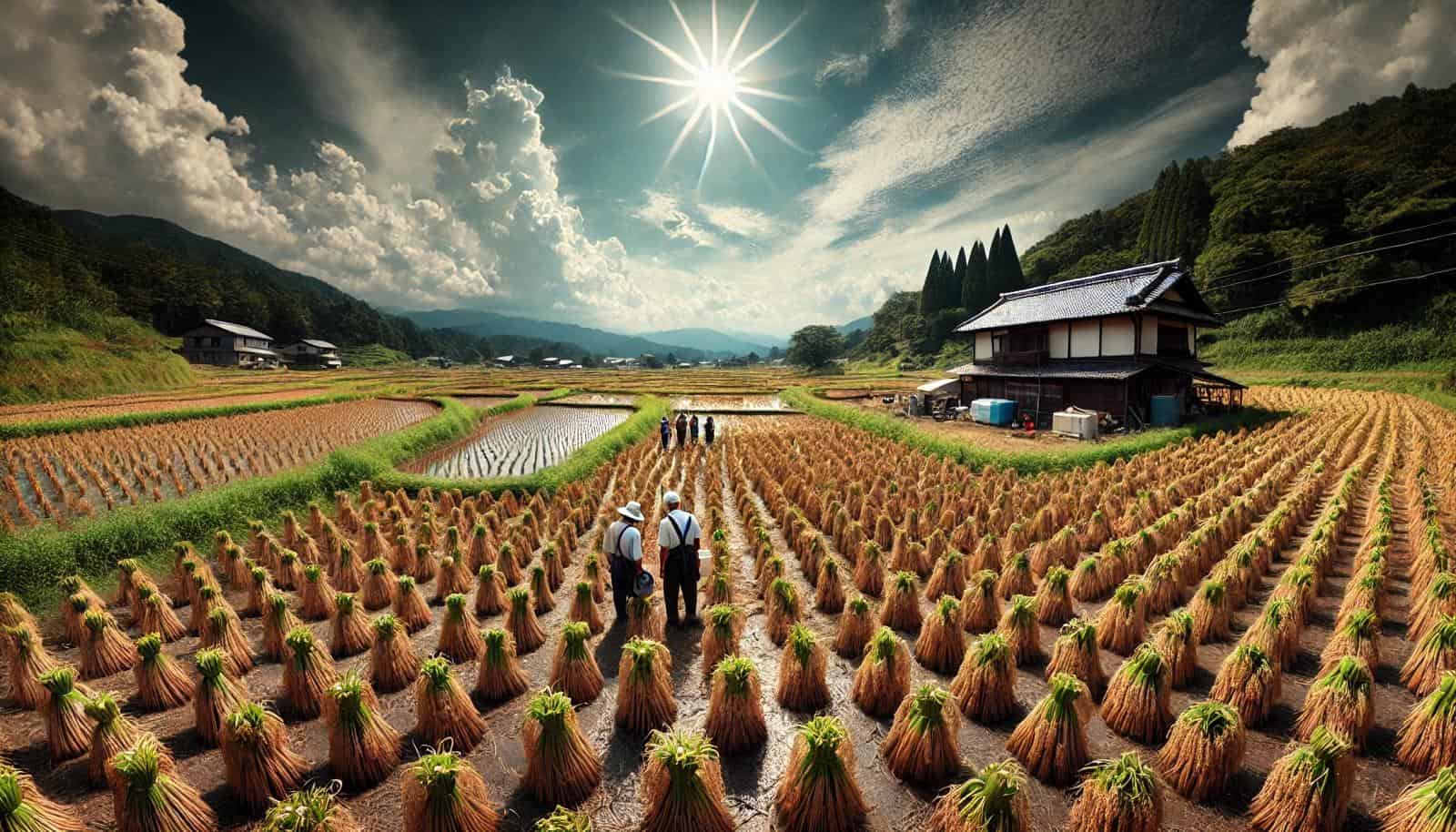Japan Faces Rice Production Crisis Amid Heatwave: An Overview of the 2024 Agricultural Challenge
Tokyo, Japan In 2024, Japan continues to grapple with significant disruptions in its rice production, a staple food for the nation. The persistent issues stem from the record-breaking heatwaves of 2023, which critically impacted rice yields and quality, causing nationwide concern among producers and consumers alike.
Declining Production and Quality
The extreme weather conditions have led to an anticipated drop in rice production to 7.3 million tonnes in the 2023-24 marketing year, down from 7.48 million tonnes the previous year. The high temperatures and limited rainfall have notably affected rice quality, resulting in an increase in empty grains, smaller grain sizes, and more chalky and cracked kernels. This decline in quality was evidenced in Niigata Prefecture, a region known for its high-grade “Uonuma Koshihikari” rice, where many farmers faced complete crop failures【7†source】【6†source】.
Market and Consumer Impact
As a result of these quality issues, some supermarkets have been forced to limit rice purchases to avoid panic buying, while rice prices have seen a sharp increase, reflecting the tightened supply. The rise in prices is also partially fueled by a rebound in tourism, which has increased demand for Japanese cuisine【8†source】. Supermarket chain Akidai, for instance, reported placing restrictions on rice purchases as customers face ongoing price hikes【8†source】.
Government and Industry Response
In response to the crisis, local farmers’ cooperatives and the government are attempting to reassure the public. Despite the fall in grade, efforts are being made to promote the unaffected taste of the rice. Tasting events and promotional activities are being held to maintain consumer trust and stabilize market reactions.
Future Outlook
Experts are now urging the need for developing heat-resistant rice varieties to prevent similar crises in the future. The agricultural ministry and scientific communities are likely to focus on innovative agricultural techniques and possibly genetic modifications to address the challenges posed by climate change.
This ongoing situation highlights the vulnerability of agriculture to extreme weather events and underscores the importance of sustainable practices and resilience planning in ensuring food security in Japan and globally.

